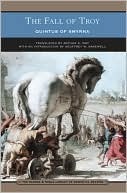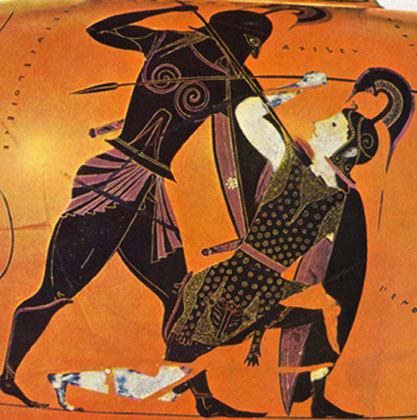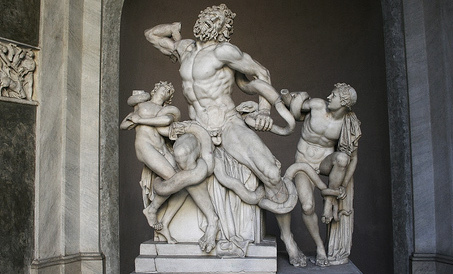What do you think?
Rate this book


301 pages, Paperback
First published January 1, 350


Stouthearted Poias’ son made this reply to him:
‘‘Good friend, I am no longer angry with you, nor with any
Other Argive, if anyone else has done me wrong.
I know that the mind of a good man should be pliable.
It is not right to be angry and surly forever;
One should be sometimes fierce and sometimes gentle.
Now let us go and rest, for a man who wants to fight
Does better to sleep than to go on feasting for too long.’’
That said, he rose to leave and went to the quarters
Of his comrades. They then for their warlike king
Hurried to make his bed with happiness filling their hearts.
He was glad to take his rest till the following dawn.